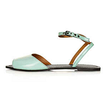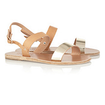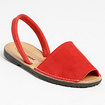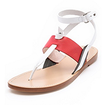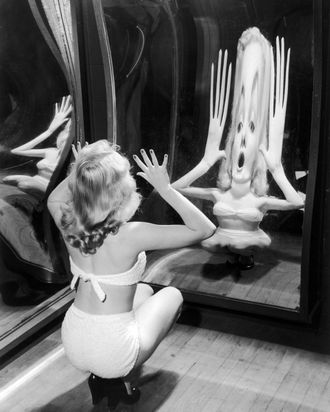
In my first week of college, I, like virtually everyone else, lugged a $10 over-the-door full-length mirror from Bed Bath & Beyond back to my dorm room. Then, over the course of the next two weeks, I gained the freshman fifteen. Or so I thought, until a bulimic friend showed me how the dorm’s overactive radiator had warped the mirror convex, making my stomach, hips, and thighs look relatively wider than they were in real life. I removed the mirror to the dorm’s dumpster/smoking area. I did eventually gain weight, of course, but not as fast or as miserably as I would have if I had continued panicky crash-dieting for the rest of the year. So I must reluctantly admit that I think Belinda Jasmine, the inventor of the Kickstarter-funded “Skinny Mirror” featured in the Daily Mail today, might be on to something.
“An avid surfer and health enthusiast,” Jasmine knew her “fat mirror” was a fat mirror, but she still couldn’t shake the paranoia that she’d gained weight and looked bad. When she used the Skinny Mirror prototype — a concave mirror that claims to carve ten pounds off your reflection — she “stood up taller, felt sexier, and wanted to dress cuter.” She believes looking good can motivate people to eat better, which might not just be body-dysmorphic girl-logic. A study of 6,000 overweight adults published in PLOS One confirmed the inverse is true, anyway. When people felt bad about their weight — that is, they perceived that they were discriminated against for being overweight — they were 2.5 times more likely to become obese four years later. Lying to yourself may not be the ideal mechanism for building self-esteem, but if you’re going to be constantly bombarded by photographs of Photoshopped 19-year-olds either way, a $165 mirror to level the playing field sounds cheaper and less time-consuming than therapy.


